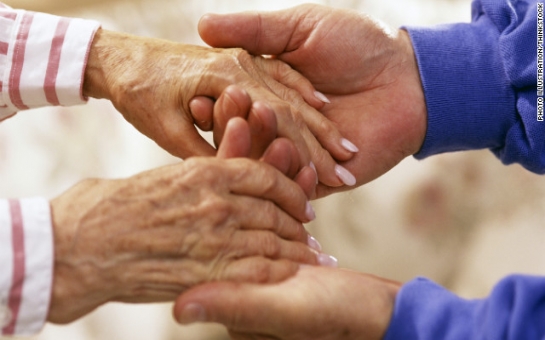Follow us !
Five studies you may have missed
Society
13:20 | 28.12.2013

Five studies you may have missed
Here's a roundup of five medical studies published this week that might give you new insights into your health, mind and body. Remember, correlation is not causation – so if a study finds a connection between two things, it doesn't mean that one causes the other.1. A shock to make you forgetJournal: Nature NeuroscienceWe all have memories of experiences we'd rather not look back on, which trigger strong emotions when we reflect on them. Scientists demonstrated in a small study that electricity may be able to manipulate what we remember, although it's not clear if the technique would work with personal memories.In this experiment, 42 people with severe depression watched two narrated slideshows describing unpleasant stories. A week later, they had to remember one of the stories after viewing part of a relevant slide they had seen before. Then, some participants received electroconvulsive therapy and had to recall both stories when they woke up from anesthesia. Others got tested 24 hours later, and a third group did not receive electroconvulsive therapy.Those tested 24 hours after the shock treatment showed a curious pattern: They could not remember the story they had been prompted to recall right before the electroconvulsive therapy.“I think it’s interesting as a proof of concept, but I don’t think it’s necessarily going to be a robust treatment because it’s so invasive,” psychologist Elizabeth Phelps told TIME.com.Read more from TIME.com2. Panel issues recommendations on breast, ovarian cancer screeningsJournal: Annals of Internal MedicineWe've been hearing a lot about genetic mutations linked to breast and ovarian cancer, specifically those called BRCA1 and BRCA2.The U.S. Preventive Services Task Force (USPSTF) said this week that women with a family history of these cancers should be evaluated for possible connections to genetic mutations. They should get genetic counseling only if a link is possible and, if appropriate, a test for BRCA mutations."The first thing to understand is the vast majority of women will not need this testing and will not benefit from it," Dr. Douglas K. Owens, a member of the task force, told Reuters Health.Read more from Reuters HealthMore information: Breast cancer screening questions answered3. Stop and read before freezing your eggsStatement by the American College of Obstetricians and Gynecologists"Oocyte cryopreservation" is the technical term, but what we're really talking about is women freezing their eggs. A group of doctors says that while this may appear appealing for women who aren't yet ready to have children, they actually don't advise it for this purpose.The American College of Obstetricians and Gynecologists issued a warning this week that there is not enough evidence to recommend that women freeze their eggs for the purpose of "circumventing reproductive aging" - in other words, trying to have kids at a later time, when they're likely less fertile.With appropriate counseling, however, the practice is still recommended for patients with infertility problems because of chemotherapy or other medical treatments that are reproductively damaging."We don’t want to give patients the impression that this technology can guarantee a successful pregnancy," Dr. Samantha Butts told NBCNews.com's Today.Read more from Today.4. Religious beliefs linked to brain thicknessJournal: JAMA PsychiatrySpirituality may have connections to the physical structure of the brain, a new study reports.This was part of a long-term investigation; the 103 participants were children or grandchildren of people who had been involved in research previously looking at depression. Some first-generation participants had depression and some did not.For the current study, researchers looked at the level of significance of religion in participants' lives, and found that this was associated with thickness cortices in some parts of the brain. Interestingly, the effect was stronger in people who had a high familial risk of depression.Study authors did not, however, show that religious belief causes brain changes, or vice versa.Read more from Philly.com5. Alzheimer's and concussions may be linkedJournal: NeurologyBrain trauma can have implications for memory later in life, a new study suggests, but not everyone with these injuries will be impaired down the road.Researchers at the Mayo Clinic examined 448 older Minnesotans without symptoms of memory problems and 141 who had such difficulties. About 17% of each of these groups had experienced a brain injury earlier in their lives that incorporated a loss of consciousness or memory.Brain scans revealed that individuals who had both memory problems and prior brain injury had a five-fold increased risk of having buildup of a protein linked to Alzheimer's disease, compared to those who did not have memory problems."In my view, these findings are consistent with the idea that traumatic brain injury may lead to amyloid accumulation and Alzheimer's disease," says Richard Lipton, director of the Division of Cognitive Aging and Dementia and the Montefiore Headache Center at Albert Einstein College Of Medicine in New York City, told USA Today.But more research is needed to fully understand the connection.(CNN)ANN.Az










